Sherry, Sydney and Ying
A group of us got up around 6:00 am this morning to watch the sunrise over Lake Naivasha. At 7:00 am we went on a bird watch along the shore, spotting birds like cormorants, egrets, pelicans, and herons. Dr. Lougheed spent some time educating us on the evolution of birds, their classification, and families that may be found at Naivasha. At 8:00 am we had a delicious breakfast of fried plantains, pancakes, fruit, and toast. Soon after, we listened to critiques of some articles presented by Sherry, Sydney, Kim, Hayden, Amber, and Silvi. The topics covered in these papers included the history of land use and people in different regions of Kenya, as well as biodiversity hotspots and conservation of birds and mammals in Africa. Many of our article presentations were sabotaged by the incessant calls of the helmeted guinea fowl, but it’s all part of the fun of taking a field course. Halfway through our presentations, we took a break and noticed a pair of hippos approaching the shoreline. From a safe distance, we watched as one came onto shore to mark its territory before laying down to soak up the sun.
After the article presentations, we had lunch, followed by some free time to either work on our projects or hone our skills in hacky sack. Around 3:00pm we gathered into 5 groups to compete in a friendly geocaching competition. The competition consisted of locating 12 points indicated by coordinates, all with a question about biology that we had to collect and answer. The questions were designed to test our knowledge on topics that we had covered on the trip thus far, such as endangered species, Kenyan history, and geography. The first group back with all questions answered got the most points. The competition was fierce, with many of us braving a spiky bush to finnishthe fastest. It was a fun time to practice our newly learned GPS skills and newfound knowledge of Kenya with a bit of competition.
Afterwards, we all gathered at a lounge nearby to hang out and play some ping pong, in which Damian was undefeated against 6 opponents, including our very own Dr. Wang. At the lounge, some of us tried our hand at catching some of the local lizards but were largely unsuccessful. Heading back to camp, we saw a group of 8 colobus monkeys jumping between the trees nearby. They’re known for stealing anything they can get their hands on, so thankfully they stayed high up in the canopies.
Later that evening, we had a tasty dinner provided by our Bunduz cooks. After dinner, Dr. Wang presented a lecture on water issues in Kenya, which focused on water use and the conflicts surrounding it. It was very insightful, as it also included information about issues around Lake Naivasha specifically, which is where we are staying. For instance, Lake Naivasha is a centre for horticulture and agribusiness, with 70% of Kenyan flower production occurring in this area. However, this is an issue, as many Kenyans have difficulty accessing potable water, much less freshwater in general. After a long day of excitement and learning, we all headed to bed pretty early in preparation for another early rise tomorrow morning.
- Black and white colobus monkeys
- Black and white colobus monkey grooming its tail
- Varied sunbird
- Fischer’s lovebirds
- Hippo with egret
- Common drongo
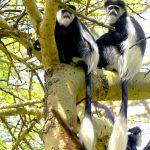
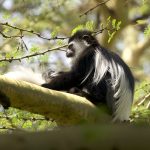
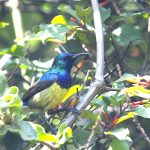
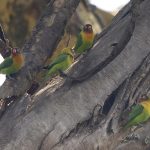
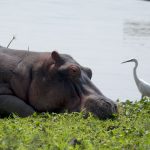
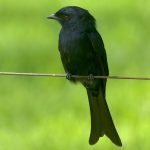
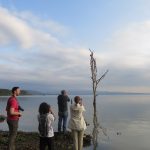
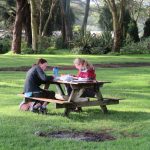
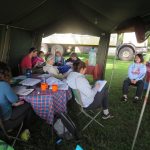
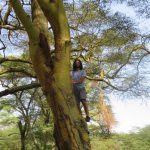
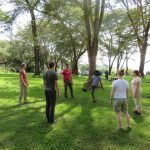
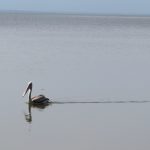
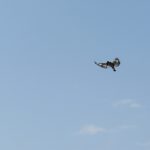
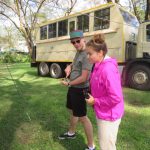

Leave a Reply